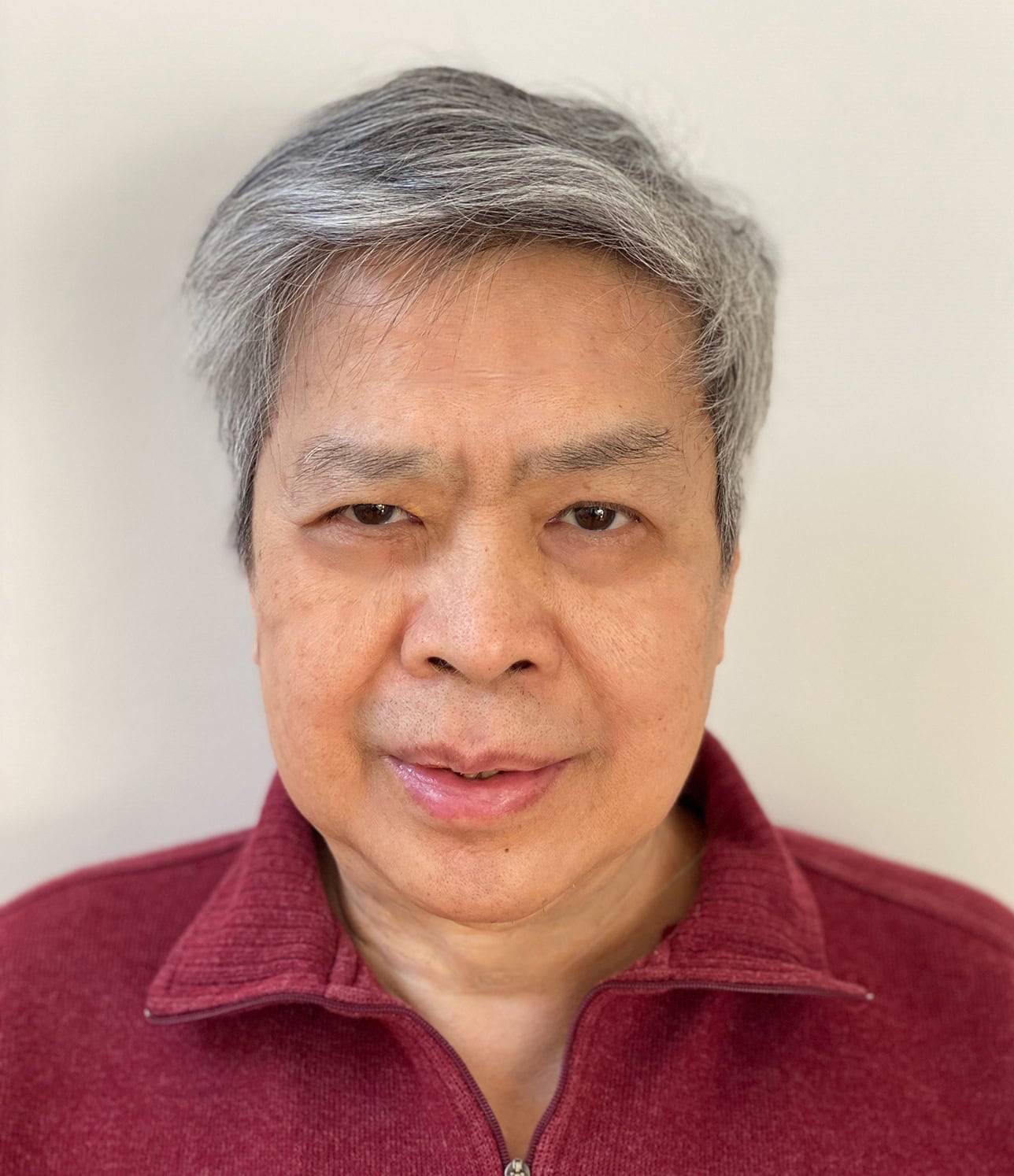Biosketch
Duong H. Phong is a US mathematician of Vietnamese origin, whose main research interests are partial differential equations and geometry, notably the equations and geometry
arising from complex analysis, string theory, and mathematical physics.
Education and positions held
He graduated with a baccalaur´eat from the Lyc´ee Jean-Jacques Rousseau in Saigon,
South Vietnam. After a year spent at the Ecole Polytechnique F´ed´erale de Lausanne,
he transferred to Princeton University, where he got his BA degree in 1973 under the
supervision of Donald C. Spencer, and his PhD degree in 1977 under the supervision of
Joseph J. Kohn and Elias M. Stein. During the years 1975-1977, he was an L.E. Dickson
instructor at the University of Chicago.
He spent the year 1977-1978 at the Institute for Advanced Study, on a fellowship from
the American Mathematical Society. Since 1978, he has been at Columbia University,
where he was successively a Ritt Assistant Professor (1978-1881), an Associate Professor
(1981-1986), and a full professor since 1986. He served as chair of the Mathematics department of Columbia University from 1995 to 1998, and is credited by many with rescuing
the department from a decline with several outstanding recruitments.
He has also held many visiting positions, including at the Ecole Polytechnique, the
University of Paris at Orsay and at Jussieu, Strasbourg University, the Ecole Normale
Superieure, the University of Toulouse in France; the University of Torino in Italy; and
the University of M¨unster in Germany.
Recognition
In 1977-1978, he received a Fellowship from the American Mathematical Society.
In 1982-1984, he received an Alfred P. Sloan Fellowship.
In 1994, he was an invited speaker at the International Congress of Mathematicians,
which was held that year in Z¨urich.
In 2000, he held the honorary Aisenstadt Chair at the Centre de Math´ematiques of
Montr´eal.
In 2009, he received the Stefan Bergman Prize, shared with Ngaiming Mok.
In 2013, he has elected to the American Academy of Arts and Sciences.
In 2021, he was named to the 2021 Class of Fellows of the American Mathematical
Society.
In 2024, he was elected to the National Academy of Sciences.
Research Interests
The main research interests of Duong H. Phong are partial differential equations and
geometry, notably the equations and geometry arising from complex analysis, string theory,
and mathematical physics. He is particularly known for
- the development of singular Radon transforms (jointly with Elias M. Stein);
- the development of a systematic approach to PDE based on microlocalization and
canonical transformations (jointly with Charles Fefferman);
- the introduction of a new Hamiltonian theory for integrable models with applications
to Seiberg-Witten theory (jointly with Igor Krichever);
- the solution of elliptic Calogero-Moser systems for arbitrary simple Lie algebras and
a breakthrough on the long standing problem of superstring perturbation theory at
two loops (jointly with Eric D’Hoker);
- the introduction of new curvature flows motivated by string theory, notably the Type
IIA flow on 6-dimensional symplectic manifolds (jointly with Teng Fei, Sebastien Picard, and Xiangwen Zhang);
- and new PDE methods for the complex Monge-Amp`ere and other fully non-linear
equations, opening the door to a deeper analysis on K¨ahler singular varieties than
had been available (jointly with Bin Guo, Freid Tong, Jian Song, and Jacob Sturm).
He is currently continuing to work on developing PDE methods for the equations
arising from string theory, and for analysis on singular K¨ahler spaces.
Membership Type
Member
Election Year
2024
Primary Section
Section 11: Mathematics
